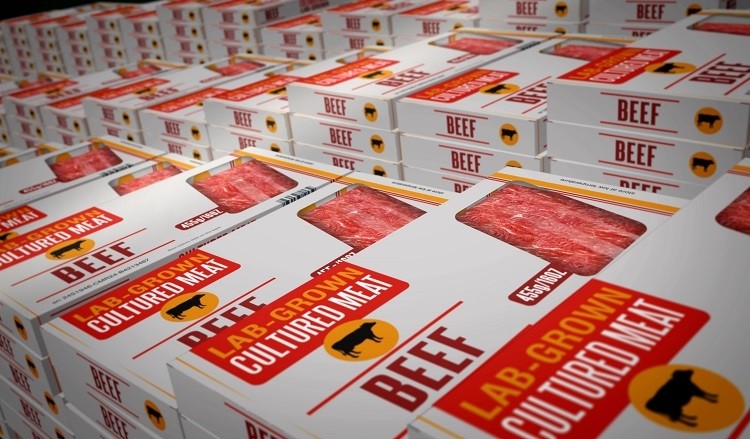Cultivated meat – in any other case referred to as cultured, lab-grown, or cell-based meat – is produced from actual animal cells which can be grown and organized in an analogous construction to animal tissues. Cultivated meat merchandise are designed to imitate the sensory and dietary profiles of their typical counterparts, slaughter-free.
The primary cultivated meat burger was produced in 2013, however it wasn’t till late 2020 {that a} cell-based meat product formally entered the market in Singapore. Since that point, one other cultivated rooster product has efficiently accomplished a pre-market security overview within the US, however extra regulatory checks are required forward of commercialisation.
Two different areas are well-known for his or her thriving cultivated meat ecosystems – the European Union and Israel – however neither has put merchandise available on the market. How do these programs work? And what wants to alter to get cultivated meat on their shoppers’ plates?
Israeli course of like Singapore’s, however with much less progress
Israel is a hotbed of cultivated meat exercise, with three of the primary eight cultivated meat firms on the planet hailing from the Center Jap nation: Aleph Farms, SuperMeat, and Believer Meat (previously Future Meat Applied sciences).
In response to Ambika Hiranandani, a authorized, coverage and partnerships advisor to various protein firms and Good Meals Institute (GFI) alumni, a number of firms have already submitted dossiers for regulatory approval, however none have been granted to this point.
This isn’t an indication that Israel’s regulatory course of is flagging, in truth Hiranandani praised Israel’s regulatory construction for naming one individual throughout the authorities accountable for dealing with file submissions. The same construction was applied in Singapore.
“There are similarities between Singapore and Israel’s fashions. Regardless that Israel hasn’t given regulatory approval to anybody as but, [we know cultivated meat] suits inside their novel meals framework [and will require pre-market authorisation]. They’ve a single level of contact who works on it however haven’t proceeded fairly so far as Singapore.”
From Madeline Cohen’s perspective, a senior regulatory legal professional at GFI, the Israeli Authorities continues to be within the means of figuring out precisely what the security assessments for cultivated meat will seem like. However the willingness is there.
In September final 12 months, for instance, the Israeli Ministry of Well being labored with the UN Meals and Agriculture Group (FAO) to convene researchers and develop ‘numerous facets’ of cultivated meat and dairy, together with meals security and regulation, we have been advised. “In previous years, they’ve convened related roundtables to deliver specialists collectively and suppose via what ought to be included in [cultivated meat] security assessments.”
The place precisely the Authorities is on this course of is unsure because it has but to publish steerage on regulation particular to cultivated meat. It’s potential such documentation is on the way in which, nevertheless, which might assist firms know precisely what ought to be submitted, and what the Nationwide Meals Management Service will have a look at when making pre-market authorisation choices.

What is definite, is that Israel has been amongst the main international locations when it comes to cultivated meat funding. Simply final 12 months, the Israel Innovation Authority granted $18m (€16.7m) to a brand new Israeli consortium for cultivated meat improvement. “The nation is unquestionably very occupied with being a pacesetter on this house.”
EU a ‘slower course of’ with restricted pre-market session
The EU, alternatively, is famend for its stringent and time-intensive Novel Meals regulatory course of, which some estimate might simply take a minimal of 9 months, and even as much as 18 months or longer. This has but to be seen in cultivated meat, nevertheless, as FoodNavigator isn’t conscious of an organization having submitted a novel meals file on cell-based meat to the European Meals Security Authority (EFSA).
That is no reflection of the dimensions of Europe’s cultivated meat ecosystem, which is prospering. Europe is dwelling to a number of cultivated meat majors, together with Mosa Meat and Meatable within the Netherlands, JBS-owned Biotech Meals in Spain, and Gourmey in France, amongst others.
An apparent constructive in regards to the EU’s regulatory course of for cultivated meat merchandise is that it’s crystal-clear which laws apply: Novel Meals regulation is nicely established, having been round since 1997. EFSA has been working via novel meals authorisations since that point for different sorts of merchandise, however GFI’s Cohen is anxious that ‘restricted session’ happens between EFSA and corporations previous to file authorisation.
This could possibly be why a cultivated meat firm has but to submit a file, she urged. “That may depart issues a bit extra ambiguous maybe, in comparison with locations like Singapore or the US, the place there are extra alternatives for session [with regulators] early on within the course of.”
One other complication for firms eager to market cell-based meat merchandise in Europe lies in an additional step set out by the Fee. Inside seven months from the date of the publication of EFSA’s opinion, the Standing Committee on Vegetation, Animals, Meals and Feed should vote on its implementation into the Novel Meals file. If the vote is beneficial, the product might be lawfully positioned on the EU market.
This can be a ‘sophisticated step’, defined Cohen. “You undergo EFSA first, then the vote. So the method is estimated to take nearer to 18 months and even as much as three years for some merchandise.
“EFSA has taken a very long time with another novel meals merchandise previously, so it’s not clear how lengthy it might take from the time an organization submits a cultivated meat file to the time EFSA makes a ultimate resolution, after which the Fee votes on that call.
“It actually looks like a slower course of and there’s not fairly as a lot readability for firms on what precisely they should present, given the restricted pre-market session course of.”
Can Europe take any learnings from Israel?
Cohen’s main suggestion for EU policymakers is to emphasize the necessity for transparency within the approval course of and to make sure pre-market session is available.
“There may be restricted availability to try this, however making it clear to firms what they should submit forward of time [is important],” she advised FoodNavigator. Offering firms with a ‘basic concept’ of timelines may be useful.
Cohen believes this might encourage higher concentrate on the EU marketplace for cultivated meat firms. “Understandably, firms could need to search approval first in locations the place they’re surer of precisely how lengthy it should take to enter the market. It is likely to be somewhat riskier [for the company] if that course of drags on…”

For Hiranandani, the EU can study a lot from different geographies – notably Israel, Singapore and the UK – the place governments have applied a ‘single level of contact’ to obtain novel meals submissions.
“That’s one factor that lacks within the European Union.”
In ‘Dissecting cultivated meat regulation half 2’, we’ll have a look at the challenges and alternatives that exist within the US and Singapore’s regulatory frameworks for cultivated meat.


